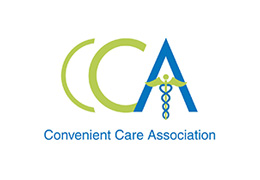Erectile dysfunction (ED) is a topic often swept under the rug, especially among truck drivers. But dealing with ED isn’t just about the bedroom—it’s a serious health issue that affects your confidence, relationships, and overall quality of life.
And these issues can be discreetly addressed with honesty and practical, no-BS medical solutions. Let’s break down what ED is, why it happens, and easy and affordable treatment options.
What is erectile dysfunction?
Erectile dysfunction occurs when a man has trouble getting or having an erection that is firm enough for sex.
From time to time, this can happen to any man. But when it becomes a regular issue—more than just the occasional hiccup—it could mean ED. It’s one of the most common sexual health issues facing men all around the globe (Healthline).
It can impact men of all ages and is not related to a man’s performance ability or virility (sexual drive).
How common is erectile dysfunction?
ED is extremely common. Exact figures vary, but some studies show that 30 million men in the U.S. experience symptoms of ED (NIH) — that’s roughly 18% of the male population. Other estimates put the figure as high as 47% (NCBI).
With many men too embarrassed to receive treatment, the actual number is likely closer to 47%, which means that nearly half of all U.S. men have erectile dysfunction at some point.

What causes erectile dysfunction?
For men, becoming sexually aroused is a complex process that involves the brain, hormones, stimuli, emotions, nerves, muscles, and blood flow. An issue in any one of these areas can cause ED.
The most common physical causes of erectile dysfunction include:
- Heart disease
- Obesity
- Clogged blood vessels
- High cholesterol
- High blood pressure
- Diabetes
- Metabolic or thyroid issues
- Certain prescription drugs
- Parkinson’s disease
- Multiple sclerosis
- Tobacco use
- Peyronie’s disease
- Alcoholism and other forms of substance abuse
- Sleep disorders
- Low testosterone levels
- Surgeries or injuries to the pelvic or spinal cord area
- Prostate issues
Psychological (mental) issues are also common, such as stress, anxiety, depression, or relationship problems.
Understanding erectile dysfunction in truck drivers
While all men can suffer from health issues that can cause ED, truck drivers are especially at risk. The unique job and challenging conditions of life on the road contribute significantly.
- Work environment: Long hours of sitting, minimal physical activity, and often only unhealthy food choices. This combination can lead to obesity, high blood pressure, diabetes, and heart disease—all risk factors for ED as they lead to poor circulation (Medical News Today).
- Job stress: The trucking lifestyle can be stressful with constant pressure to meet deadlines and the isolation of being on the road for weeks at a time. Depression, performance anxiety, and stress are all linked to ED (Houston Methodist).
- Limited food options and unhealthy habits: Smoking, heavy drinking, and a poor diet are common among truckers. Smoking reduces blood flow to the penis. Heavy alcohol impacts the nervous system and hinders sexual response (Medical News Today).
Help is at hand: Erectile dysfunction treatments
There are several effective medical options for treating ED. Here are some popular and effective choices:
Sildenafil (Viagra)
Sildenafil, commonly known as Viagra, is a popular choice for treating ED. It belongs to a class of drugs called PDE5 inhibitors, which work by relaxing blood vessels and increasing blood flow to the penis. This makes it easier to achieve and maintain an erection. Sildenafil is typically taken about 30 minutes to an hour before sex and lasts for about four to six hours. It’s a convenient go-to option for many men (Healthline).
Sildenafil side effects: The drug can cause some side effects, such as headaches, flushing, indigestion, dizziness, and in rare cases, vision changes.
Tadalafil (Cialis)
Another heavy hitter in ED treatment is tadalafil, known as Cialis. Tadalafil also falls under the PDE5 inhibitor category but the drug has a much longer duration—up to 36 hours. This “weekend pill” allows for more spontaneity, as you don’t need to time when you take the pill closely to when you (plan to) have sex (Healthline).
Tadalafil side effects: Similar to sildenafil, tadalafil can lead to headaches, indigestion, back pain, and facial flushing.
Alternative medications: avanafil (Stendra), vardenafil (Levitra)
There are other Rx options for ED like avanafil (Stendra) and vardenafil (Levitra). These PDE5 inhibitors work similarly to sildenafil and tadalafil but may take more or less time to start working and can remain in the system for longer.
Vardenafil, for example, is known to start working a bit faster for some men.
Treatment within 48 hours: How to get started with an online doctor’s visit
Trucker’s Body Shop is dedicated to connecting truckers with convenient, high-quality care and affordable prescription drugs.
We can quickly and privately connect you with a doctor in an online e-health visit.
Every day, Trucker’s Body Shop connects hundreds of men to convenient and affordable online healthcare with medications delivered directly to their doorstep or truckstop—often within 48 hours.
Other treatments for erectile dysfunction
While medications are effective, they aren’t the only treatment options available. Many non-prescription treatments work just as well (Houston Methodist).
Vacuum erection devices (VEDs)
A vacuum erection device, or penile pump, is a non-invasive option that helps you achieve an erection by drawing blood into the penis using a vacuum seal. After achieving an erection, a tension ring is placed at the base of the penis to maintain it.
While this might not be the most romantic method, it’s effective and can be used alongside other treatments. Side effects may include minor bruising or a cold sensation.
Penile implants
Penile implants are a more permanent solution when other treatments don’t work. It involves surgically placing a device inside the penis that is manually adjusted to create an erection. While invasive, it has a high satisfaction rate among men who choose this option.

Natural supplements and lifestyle changes to boost libido and manage ED
Many men seek natural remedies and lifestyle changes. While results can vary, these methods can fully treat ED or help other medical treatment options work better (Medical News Today).
Best supplements for libido
Some of the best supplements for men’s libido are all-natural, affordable, and available at most grocery stores, drug stores, and supermarkets.
- L-arginine: This amino acid helps produce nitric oxide, which promotes healthy blood flow that’s needed for maintaining an erection.
- Ginkgo biloba: Believed to increase blood flow to the penis, ginkgo biloba is a popular natural remedy, but more research is needed. Additionally, it can interact with blood-thinning medications.
- Ginseng: Known for its energy-boosting properties, ginseng is used to improve libido and blood flow. Some studies show ginseng can treat ED, but more research is needed.
- Yohimbine: This herb comes from the bark of an African tree and is another common ED treatment. While some find it effective, it can cause side effects such as increased heart rate, anxiety, and high blood pressure.
- Horny goat weed: This herb is thought to help with ED caused by nerve damage.
Lifestyle changes to improve erectile dysfunction
In addition to these best supplements to improve libido in men, lifestyle changes can make a big impact.
- Regular exercise: Physical activity, even just walking or light strength training, can improve circulation, boost testosterone levels, and reduce stress—all critical for preventing ED. Aim for at least 30 minutes of moderate exercise most days of the week.
- Healthy diet: A diet rich in fruits, vegetables, whole grains, and lean proteins helps support better blood flow and heart health. Foods rich in flavonoids, like berries and citrus fruits, have been linked to reduced ED risk.
- Quit smoking and limit alcohol: Both smoking and heavy alcohol consumption can lead to ED by affecting blood flow and nerve function.
- Manage stress: High levels of stress can affect your sex life. Deep breathing, meditation, or even just listening to music can help lower stress and improve your overall well-being,
How to talk to your doctor about erectile dysfunction
Talking about erectile dysfunction (ED) can be uncomfortable, but it’s an important step in taking control of your health—especially for truck drivers, who often face unique health challenges. Here’s how to make the most of your conversation with your doctor:
1. Be honest about your symptoms: Don’t downplay your symptoms or how frequently they happen. Share details about when you first noticed changes, how often you experience difficulties, and any other symptoms that might be related. Your doctor needs a clear picture to provide the best care possible (Mayo Clinic).
2. Discuss lifestyle and work conditions: Let your doctor know about your work environment, diet, exercise habits, and stress levels. This can help your doctor suggest lifestyle changes or personal treatment options that fit your needs (Harvard Health). For example, they may also prescribe weight-loss drugs in addition to ED medication.
3. Ask about all treatment options: Many men visit the doctor convinced they want the meds they saw in the commercial or men’s health magazine, and have a one-track mind. Be open. While medications like sildenafil and tadalafil are common, other options like testosterone therapy or lifestyle changes might work better for you and offer a better sex life (NHS). Understanding all of your options gives you the best chance for success.
4. Be open about emotional and psychological concerns: ED is often linked to mental health issues such as anxiety, depression, or stress. It may seem uncomfortable or unmanly to talk about your feelings. But it’s a no-BS option that works if you’re serious about treating ED. Every day, thousands of men—including truck drivers—have plain, frank conversations with their doctors about these issues, and their physical, mental, and sexual health greatly improves. Talk openly to your doctor so they can recommend the best treatment options (Harvard Health).
5. Prepare questions ahead of time: Write down any questions or concerns you have before your appointment. This might include potential side effects, lifestyle changes, or what to do if treatment doesn’t work. A list will make sure you don’t forget to cover anything.
Preventing erectile dysfunction: Tips for truck drivers
Preventing erectile dysfunction is just as important as treating it, especially for younger truck drivers. Early prevention can lower the risk of ED and other related health issues.
1. Get your healthy energy fix: Long hours behind the wheel often lead to a sedentary (inactive) lifestyle, which is a major reason for ED. Add short bursts of physical activity during breaks. Walking, squats, or stretching can maintain good circulation and heart health and boost your mood and energy (Harvard Health).
2. Pack healthy snacks: A healthy diet is crucial for preventing ED, along with high blood pressure, diabetes, and obesity (NHS). Many good-for-you options can be purchased at truck stops, including nuts, seeds, jerky, fresh fruit, cheese sticks, protein bars, and hard-boiled eggs. You can also pack a cooler with cottage cheese cups, deli meats, veggie sticks, hummus, and Greek yogurt.
3. Quit smoking, limit alcohol: Smoking or heavy alcohol use can damage blood vessels and restrict blood flow to the penis, leading to ED. Quitting smoking and drinking in moderation both promote better sexual health and overall wellness (Mayo Clinic).
4. Clear your headspace: The toll of long hours and isolation can affect sexual performance. Find ways to manage stress—such as deep breathing, calming music, or even speaking with a counselor. A healthy mental state can prevent ED (Harvard Health).
5. Don’t miss your health and wellness inspections: Regular check-ups can help identify any early warning signs. Conditions like high blood pressure, high cholesterol, and diabetes are easier to manage when caught early, reducing the risk of developing ED (NHS).
By being proactive, truck drivers can significantly reduce their risk of erectile dysfunction and ensure a healthier future on and off the road.
Bottom line
Erectile dysfunction is more than an embarrassing inconvenience. It impacts relationships and self-esteem and is a sign your body needs attention and care.
Suffering from ED means you’re confronting multiple issues related to your physical health, mental health, and overall wellness, and it’s important to tackle these issues head-on. The key is to take charge, seek the help you need, and make informed choices to lead a healthier, more satisfying life—both on the road and at home.











